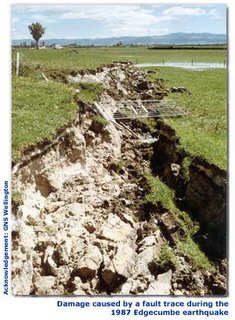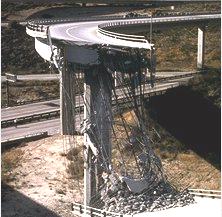A Confession of Sorts, to Break the Monotony of Recriminations and Begin Anew (for real this time)
 Oh now this is a real injury, your assessment of me against my avowals. Certainly a man should be able to define himself, in his own history at least, or at least I wish it were so. You will see below that even as I write this, I am not sure of its possibility, and doubt, like you, those avowals I mention with such reverence. Similarly, my readiness to sustain injuries to my pride is perhaps a symptom of the illness this letter hopes to cure, and the way it harries my soul, as I will explain. Still, I maintain that others may act from interest alone, while I, on the other hand, hearken to an age when chivalry was not yet slain, when one saw it more often than in the mirror. My motives are purely for the glory of Dulcinea, and whatever excess falls to me shall be my only reward. Of that much I am sure.
Oh now this is a real injury, your assessment of me against my avowals. Certainly a man should be able to define himself, in his own history at least, or at least I wish it were so. You will see below that even as I write this, I am not sure of its possibility, and doubt, like you, those avowals I mention with such reverence. Similarly, my readiness to sustain injuries to my pride is perhaps a symptom of the illness this letter hopes to cure, and the way it harries my soul, as I will explain. Still, I maintain that others may act from interest alone, while I, on the other hand, hearken to an age when chivalry was not yet slain, when one saw it more often than in the mirror. My motives are purely for the glory of Dulcinea, and whatever excess falls to me shall be my only reward. Of that much I am sure.If it weren't for the conciliatory attitude I've adopted for this letter (which is appropriate to some of confessions I have later to bare), I would certainly be tempted to call you, my most loyal friend, a villain, and spur Rocinante to Denmark (if we are not already in those environs, as earlier speculated) in order to avenge my honor and that of Dulcinea Del Toboso, that most fair of ladies, from the spurious calumnies that have vexed both of them from out of your own sweet mouth (as it is translated through your hand and its pen-attached). To be enseinte with such venom as these insults warrant and such guilt of a single moment is too much for my heart, particularly now, when I am full in the flush of adventure, entwined in the righting of wrongs, and thrashing the wildest monsters in pursuit of honor (and an island for Sancho Panza). The most salutory explanation for your attitude in the opening of your most recent letter, the explanation which most puts my mind at ease and allows me to forget the barbs, wounds, and thrusts of our recent verbal battle, is to assume that you, and perhaps myself as well, are under the spell of some evil enchanter, probably this Odvallo I am preparing to vanquish. It is likely that we are made pawns of his foul magic in order to distract my mind, that it will therefore be unable to guide my arm against him, for he knows that he can never corrupt my martial ability nor match me in honest combat, and so lays into the coward's last refuge of dark means and trickery to divert me from my goal entirely. Perhaps, though, it is only me who has been charmed. Your letter betrays in its successive passages a lucidity I long for, but which escapes me, buffeted as I am by emotion, the moment, and some passion I can only feel and not see. You are correct, I no longer take enjoyment from this chore of writing and reading. Though I remember a time when I did, like the nostalgia for youth.
And so, let me begin the process of untangling the astral thongs which are binding us and making us spin uncontrolled, you and I (perhaps only I am thus launched; the vertigo is such that I cannot tell whether it is I who is spinning, or you, or us both), around an unbalanced and wobbling axis founded on the inability of this letter-language, or our use of it, to re-present what-really-is, and its tendency to portray things as-they-certainly-are-not, and possibly -as-they-cannot-be. Worse, it is a tendency to carry facts on a cloud-vessel of emotion, perverting that former's power of reason and evidence with that latter's eloquence of persuasion.
The first thong to be worked on is the one whose bind is the most crippling, of which I have complained of late, and the knot of which is the most remote from our current state. It is, perhaps, the uber-thong of our current row and its linguistic character(s).
Coming more directly to the point, I will say that I have unhappily discovered the root of my recently-adopted illanguage. My illness, whose symptoms seem intricately allied with our communiques (they correspond to our correspondence), whose effects leave me babbling, speaking ciruitously without ever reaching the center, whose ravages have rent the fibres of my mind in its attempts to weave my historical tale for you, may be approaching the horizon of remission, if I can spur it on with a slight act that nonetheless fills me with fear.
Some time ago, you suggested, perhaps in jest, perhaps merely out of your suspicious nature (which we have already examined), that a letter bearing the signature of my squire Sancho Panza was in fact written by me, and that he and I had switched roles briefly.
I confess it was so. You had reason to doubt, for, truth, Sancho Panza can neither read nor write.
On those days, shortly after defeating the Ogre, I set to work reconstructing the story for your benefit. Only, upon reaching the end, I was stricken unreasonably with a fear that the tale sounded too self-aggrandizing, and that such congratulatory autobiography was unbecoming a knight errant. I have been infected with such reflections on the possibilities of conveying my history properly ever since I began to write our letters. I hastily signed my squire's signature to borrow his ostensibly objective perspective, hashed out several phrases to disguise my identity and insinuate his, and sent the letter to you as if it were an outsider's report of a great deed, which, I hoped, would amplify its own greatness by assuming the mantle of objectivity, by imparting the appearance of truth to that which seems terrific, and by implying much through feigning to say little.
The next letter following that one found me guilty and self-recriminating, and the expression of these sentiments was to diminish the significance of the battle with the Ogre (which was, in truth, a great victory for me) so that the entire incident might slip into obscurity and be forgotten by you, and I might never have to answer for its curious appearance in our document-ary
This attempt at concealment, too, was unbecoming a knight, and I have truly suffered the lashes of my conscience as it worked itself upon my linguistic faculty (through some odd displacement of my ego, and the substitution of my language for it). To it, I beseech mercy, and on behalf of myself, I beseech you forgive me.
That act, an effort to avoid a conflict with you, was also an effort to avoid responsibility for what was then a relative trifle that has since transformed into an epistolary cataclysm of a proportion that virtually obscures its own origin. I have, with such a "trifle" managed to undermine the aura of candor and honesty that underwrote what we wrote, which, I fear, has undermined our ability to write. I fear this new unstable space where we cannot say what we mean, even when we say what we mean. I am unsteady in this new zone (this "stage", to conscript your metaphor for my war) where things may be what they seem, but are never so in our reading the report of them. Where we are in shifting and unsure levels of performance and observation. I want to find our way back out of, or hasten our way through the shadow of earthquakes where we find ourselves (if such is possible, once one becomes accidentally aware of its omni-presence), and I would enlist your help.

And, if your graciousness affords such a luxury, I propose to begin anew for myself, in a new state of openness and candor with respect to my adventures, to embark on a firm-ground uni-directional journey of objective reportage, to cast off the veil of metaphor, the entanglements of dishonesty, acting, levels, representation, and attempt to recover with these avowals some of your faith and naivete in reading my narratives (whose objectivity you have no doubt come to ... doubt--though you say you will approach it with infant eyes). I want to know who I am, want to believe what I see in reading your narratives, in taking in and adopting all those narratives that form the foothold of a life in this world.
So, here's the rub: I propose an end to lies. This begins a new phase in my relation to my history, in which I will strip it of fantasy and embellishment, and tell it like it is.
Thus, with your blessing, I will begin Part Two of the History of Don Quixote De La Mancha.
Your own letters, haphazardly connecting the drama of the prince of Denmark, I will receive with the naivete I ask of you, and so, remain amazed at the powers of your Rasputin: M; and similarly at your donning the mantle of genealogy, a noble act, not only because in your case it happens to be literally so.
More to follow, in a lighter vein,
In supplication of forgiveness,
In anticipation of leave to continue as I see fit,
In understanding that probably there will be recompence to pay,
In genuflection,
In promises,
In nobility,
In righting of wrongs,
Don Quixote De La Mancha
Assisted by Sancho Panza, who neither reads nor writes.

0 Comments:
Post a Comment
<< Home